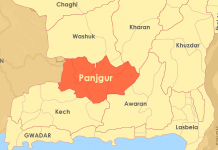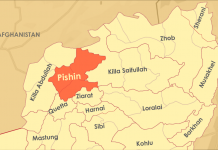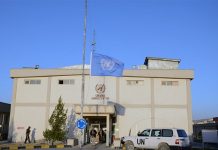Photo source: AP
A damning report by the Associated Press (AP) has revealed that China is running a “black site” and detention centres in the United Arab Emirates, the first-ever evidence of such a facility outside of China’s borders. In the report, the Chinese dissident details how she was hunted down by the Chinese officials in the UAE, “abducted” from her hotel in Dubai and detained in a villa turned detention centre. The Chinese Interior Ministry and Dubai police have denied these claims and called her account of the incidents a farce.
In the report published by the Associated Press, Wu Huan, a 26-year-old Chinese citizen, reveals what may be the first-ever evidence of a Chinese detention centre abroad. In an interview with the AP, Wu says that she was on the run in the UAE out of the fear of extradition because her fiancé is considered a dissident in China.
Wu claims that she was staying at a hotel in Dubai when she was apprehended and sent to a villa which was converted to a detention facility along with two others, both Uyghurs, a Muslim minority based in China that has been under Beijing’s radar for several years now. Wu says that she was forced to sign fabricated documents incriminating her fiancé for harassing her.
While there are known “black sites” in China, Wu’s testimony is the first and so far the only evidence of a Chinese-run detention facility abroad. The AP report has concerned human rights activists that China is using its increasing international clout to bring back dissidents and activists who are seeking asylum in foreign countries.
China’s foreign ministry has denied these claims, saying that: “What we can tell you is that the situation the person talked about is not true.” Following the lead of their protégé, the Dubai police have also contradicted these statements and said that Wu had left the country three months ago.
“Dubai does not detain any foreign nationals without following internationally accepted procedures and local law enforcement processes, nor does it allow foreign governments to run any detention centres within its borders”, Dubai officials said.
According to AP report, it appears the UAE government is allowing its sovereignty to be used for authoritarian regimes to interrogate, and likely torture and forcibly disappear, Chinese or other foreign nationals on its soil.
The recent revelation by the Associated Press has also raised concerns among Baloch activists. The Gulf countries, especially the UAE, host thousands of Baloch rights activists and dissidents who are critical of Pakistan and China’s “imperialist” designs in Balochistan. Because of their outspokenness, these dissidents were forced to flee their homeland and seek asylum elsewhere.
The coastal city of Gwadar is the epicentre of the China-Pakistan Economic Corridor, the flagship project of China’s Belt and Road Initiative. The CPEC has brought China and Pakistan closer together and cemented their camaraderie. But the multibillion-dollar project has been repeatedly attacked by Baloch insurgents who see it as encroachment in their land and the plundering of their resources.
In the wake of the recent AP report, Baloch dissidents residing in foreign countries are now concerned that they might await the same fate – or worse – as Wu Huan. They suspect that Pakistan might one day inveigle China to use its international clout to apprehend and extradite Baloch dissidents abroad.
From what is known so far, these fears might not be far-fetched. Rashid Hussain, a Baloch human rights activist who was living and working in the UAE, was detained by the Emirati forces in December 2018, family sources said. As per family sources, he was kept in confinement for some time and then illegally extradited to Balochistan six months later. From there, he was picked up by the Pakistani forces and moved to an undisclosed location.
Related: European Parliament member seeks answers from UAE ambassador on Rashid Hussain’s extradition
The Pakistani authorities alleged that Rashid Hussain had assisted the attack on the Chinese Consulate in Karachi in November of 2018. So far, the Pakistani authorities have not disclosed any incriminatory evidence that might prove Rashid’s alleged involvement in the attack on the Chinese consulate. For three years, he is being held incommunicado. His family members and Baloch rights activists have religiously campaigned for his safe return, but to no avail. It is being suspected that Rashid Hussain might have been the first victim of China and Pakistan’s hunt for Baloch dissidents in the UAE.






























